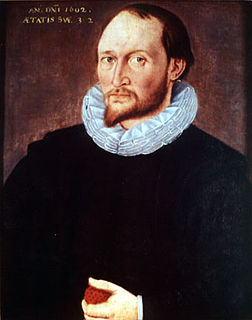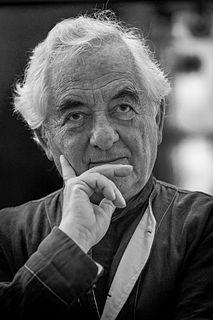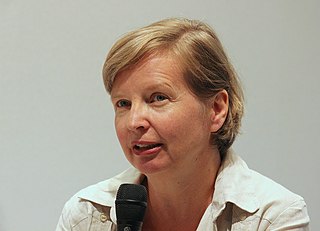A Quote by Neal Stephenson
They knew many things but had no idea why. And strangely this made them more, rather than less, certain that they were right.
Related Quotes
In the final exam in the Chaucer course we were asked why he used certain verbal devices, certain adjectives, why he had certain characters behave in certain ways. And I wrote, 'I don't think Chaucer had any idea why he did any of these things. That isn't the way people write.' I believe this as strongly now as I did then. Most of what is best in writing isn't done deliberately.
Many things they sawe with us as mathematicall instruments, sea compasses... spring clocks that seemed to goe of themselves - and many other things we had - were so strange unto them, and so farre exceeded their capacities to comprehend the reason and meanes how they should be made and done, that they thought they were rather the workes of gods then men.
Now, may our God be our hope. He Who made all things is better than all things. He Who made all beautiful things is more beautiful than all of them. He Who made all mighty things is more mighty than all of them. He Who made all great things is greater than all of them. Learn to love the Creator in His creature, and the maker in what He has made.
I have a few things that I have written over the years that haven't been made, but I sort of feel like there was a good reason why they were not made. So I am not anxious to go back and fix them. I don't have something in the desk drawer that I think, "The time is right now. If I just do this, it'll be great." It is kind of out of sight and out of mind. I am thinking ahead rather than back.
I am ready to talk today. I have been in a great many councils, but I am no wiser. We are all sprung from a woman, although we are unlike in many things. We can not be made over again. You are as you were made, and as you were made you can remain. We are just as we were made by the Great Spirit, and you can not change us ; then why should children of one mother and one father quarrel ? — why should one try to cheat the other ? I do not believe that the Great Spirit Chief gave one kind of men the right to tell another kind of men what they must do.
I knew that what I did visually could not be completely understood. I knew that certain aspects of the work need a long time to develop. You get the visual idea in two seconds, but this idea can be developed like like a theory. You can see later on if the theory was correct, followed, or completely abandoned. That's why the writing can advance what is done. This is more or less how I started to write: to be sure that people will not totally misunderstand what my goal was.
They would make the 'Church ' their great meeting-point, rather than the Atonement of Christ. As far as my experience goes, they have more devoutness and less devotion, more fear and less love, more feeling of duty than of desire, laying more stress on Phil. ii. 12 than ver. 13, and in practice working upon the intellect and imagination rather than aiming at the heart, skirmishing among the outworks rather than assaulting the citadel.
This is a world that is much more uncertain than the past. In the past we were certain, we were certain it was us versus the Russians in the past. We were certain, and therefore we had huge nuclear arsenals aimed at each other to keep the peace. That's what we were certain of... You see, even though it's an uncertain world, we're certain of some things. We're certain that even though the "evil empire" may have passed, evil still remains.
People were actually 6 times more likely to buy a jar of jam if they had encountered 6 than if they encountered 24, so what we learned from this study was that while people were more attracted to having more options, that's what sort of got them in the door or got them to think about jam, when it came to choosing time they were actually less likely to make a choice if they had more to choose from than if they had fewer to choose from.
Let there be two possible things, A and B, one of which is such that it is necessary that it exists, and let us assume that there is more perfection in A than in B. Then, at least, we can explain why A should exist rather than B and can foresee which of them will exist; indeed, this can be demonstrated, that is, rendered certain from the nature of the thing.
Our coherent extrapolated volition is our wish if we knew more, thought faster, were more the people we wished we were, had grown up farther together; where the extrapolation converges rather than diverges, where our wishes cohere rather than interfere; extrapolated as we wish that extrapolated, interpreted as we wish that interpreted.






































